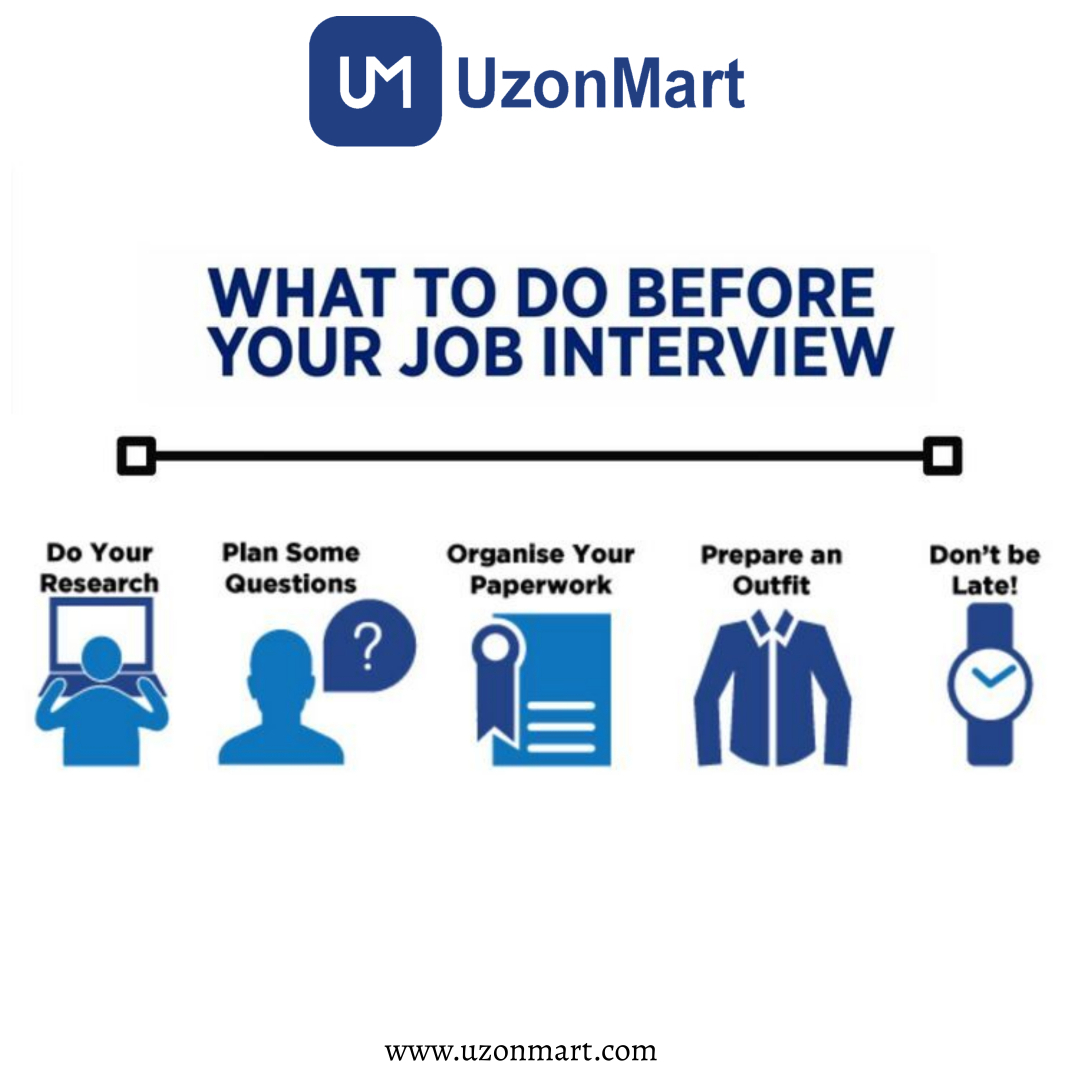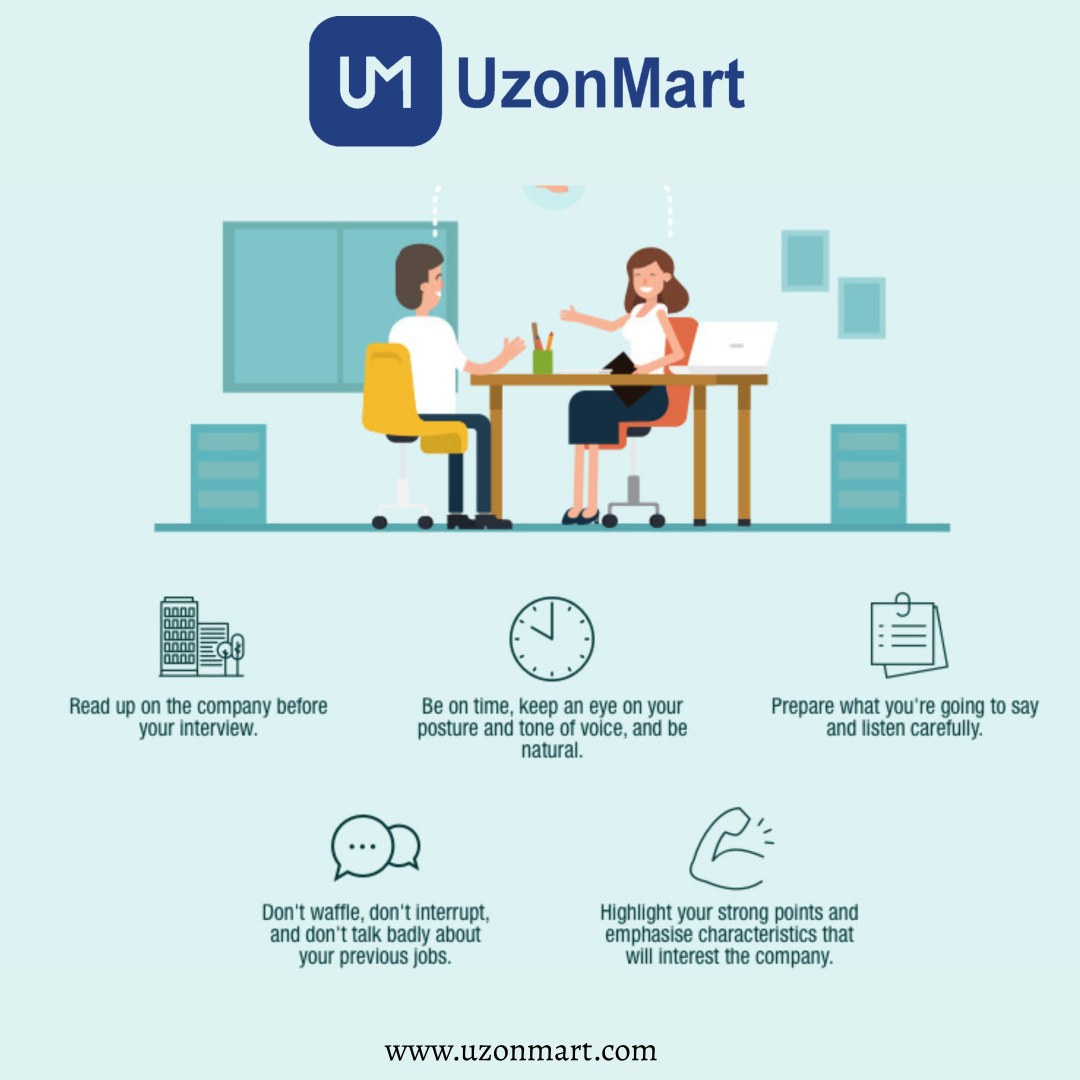How to Crack Interview?
In today's competitive job market, employers face significant challenges during the recruitment process. Cracking an interview has become increasingly important and requires careful preparation. Regardless of the number of interviews you've attended, each one presents a new opportunity for growth and learning.
During interviews, you not only meet new people but also have the chance to showcase and promote your skills and abilities. To succeed, it's crucial to display your expertise and maintain a positive and enthusiastic demeanor, regardless of the interview's duration. This can be particularly challenging when interviewing for a job you're passionate about.
To assist you, here are some valuable tips that can help you navigate almost any interview and make a memorable impression. Let's delve into these tips to ensure a smooth and impressive interview experience.
Before Interview
When it comes to your dream job or a position you greatly like, interviews can occasionally be daunting. To secure that job progression at the interview, you must rise to the occasion and present yourself honestly. The checklist you need to be concerned with before attending an interview is provided below.
1) Research the Company:
Before the interview, thoroughly research the company. Understand their values, mission, products/services, and recent achievements. This knowledge will not only impress the interviewer but also help you align your answers with the company's goals and demonstrate your genuine interest in working for them.
2) Understand the Job Requirements:
Analyze the job description and make a list of the key skills and qualifications required for the position. Identify how your experiences and skills match those requirements, and prepare examples that showcase your abilities in those areas. This will help you provide relevant and compelling answers during the interview.
3) Self-assessment:
Reflect on your own skills, experiences, and achievements. Identify specific examples from your professional or academic background that showcase your abilities and accomplishments. Consider how these examples relate to the position you're applying for and how you can effectively communicate them during the interview.
4) Practice Common Interview Questions:
Become prepared for frequent interview inquiries like "Tell me about yourself," "Why are you interested in this position?, and "What are your strengths and weaknesses?" Practice your answers to these questions, making sure to emphasize your achievements, talents, and how they apply to the position. Additionally, be sure to have concrete examples ready that highlight your capacity for problem-solving, cooperation, and adaptability.
5) Sharpen Your Technical Knowledge:
If you're applying for a technical role, make sure to review and brush up on your technical knowledge. Familiarize yourself with the latest industry trends, tools, and technologies. Be prepared to discuss specific projects you've worked on and the impact they had. Demonstrating your expertise will impress the interviewer and give you an edge over other candidates.
6) Prepare Questions to Ask:
At the end of an interview, the interviewer often asks if you have any questions. Use this opportunity to ask insightful questions about the company, the team, or the role. It shows your genuine interest in the position and your dedication to making an informed decision. Avoid questions related to salary or benefits at this stage, as it is more appropriate to discuss these during later stages of the hiring process.
7) Project Confidence and Positive Body Language:
During the interview, maintain good posture, make eye contact, and use confident body language. Speak clearly and concisely, and avoid using filler words such as "um" or "like." Show enthusiasm and passion for the role, and be attentive to the interviewer's questions and cues.
8) Plan logistics:
Determine the interview location and mode (in-person, phone, video). If it's an in-person interview, plan your route in advance and consider factors like traffic and parking. If it's a virtual interview, ensure you have a reliable internet connection, test your audio and video equipment, and choose a quiet, well-lit space.
9) Prepare your documents:
Print multiple copies of your resume, along with any other relevant documents such as a cover letter, references, or portfolio. Organize them neatly in a folder or portfolio to bring to the interview.
10) Take care of yourself:
Get a good night's sleep before the interview, eat a healthy meal, and stay hydrated. Arriving well-rested and nourished will help you stay focused and perform your best.
By following these steps, you'll be well-prepared and confident when entering the interview. Remember to be yourself, show enthusiasm, and make a positive impression.
During Interview
During the interview, it's essential to keep the following tips in mind:
- Dress appropriately: by following the company's dress code and acting professionally. It's better to be slightly overdressed than underdressed. Your attire should demonstrate how seriously you are treating the interview.
- Arrive on time: Punctuality is crucial. Plan your route in advance, consider traffic or public transportation delays, and aim to arrive 10-15 minutes early. Being punctual shows respect for the interviewer's time.
- Be prepared: Bring multiple copies of your resume, a list of references, and any other relevant documents. Do some research on the business, its tenets, and the job specifications. This knowledge will help you answer questions more effectively and engage in meaningful conversations.
- Showcase your skills and experiences: Be ready to highlight your skills, experiences, and achievements that are relevant to the position. Provide specific examples that demonstrate your capabilities and how you can add value to the company.
- Active listening and effective communication: Pay close attention to the interviewer's questions and respond thoughtfully. Be concise and articulate in your answers, and avoid rambling or going off-topic. Demonstrate good communication skills by maintaining eye contact, speaking clearly, and displaying positive body language.
- Ask thoughtful questions: Prepare a few questions to ask the interviewer that demonstrates your interest in the role and the company. This shows your engagement and allows you to gather more information about the position and company culture.
- Stay positive and enthusiastic: Maintain a positive attitude throughout the interview. Even if faced with difficult questions or challenges, remain composed and optimistic. Show enthusiasm for the role and express genuine interest in joining the company.
Remember, interviews are not only about showcasing your skills but also about building rapport and establishing a connection with the interviewer. By being well-prepared, confident, and enthusiastic, you can increase your chances of making a positive impact and landing the job.
After Interview
After the interview, there are a few important steps you can take to further enhance your chances and leave a lasting impression:
Send a thank-you note: Send a unique thank-you email or letter to each interviewer within 24 hours following the interview. Thank them for their time and restate how interested you are in the job. Mention specific points from the interview that resonated with you and highlight why you believe you're a strong fit for the role.
Reflect on the experience: Take some time to reflect on the interview. Evaluate your performance, identifying any areas where you felt particularly strong or areas where you could improve. This reflection will help you refine your approach for future interviews.
Follow up if necessary: If the interviewer provided a specific timeline for the hiring decision and that time has passed, it's acceptable to follow up with a polite email inquiring about the status of your application. This shows your continued interest in the position and allows you to gain clarity on the hiring process.
Continue job search: While waiting for a response, continue your job search and pursue other opportunities. It's essential to keep your options open and not solely rely on a single interview. Maintain momentum in your job search by networking, applying to other positions, and attending industry events or job fairs.
Learn from the experience: Regardless of the outcome, view each interview as a learning experience. If you receive a job offer, evaluate whether it aligns with your career goals and if the company culture is a good fit. Don't take rejection personally if you get one. Instead, consider it as an opportunity for growth and use the feedback to improve your interview skills for future opportunities.
Remember, the interview process can be lengthy, and decisions may take time. Stay patient, maintain a positive mindset, and keep working towards your career goals.
Conclusion
Cracking an interview requires thorough preparation, self-confidence, and effective communication. By researching the company, understanding the job requirements, practicing common interview questions, and demonstrating your skills and experiences, you can greatly increase your chances of success. Remember to present yourself professionally, maintain positive body language, and follow up with a thank-you note. With these strategies in hand, you are well on your way to cracking the interview and securing your desired job. Good luck!
UzonMart loves your feedback, and we go above and beyond to make sure you don't run into any problems. By leaving a review on our website, you can inform others how to make better decisions and let us know how we're doing. We are grateful that you choose UzonMart.





